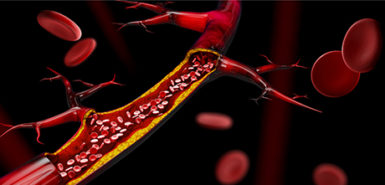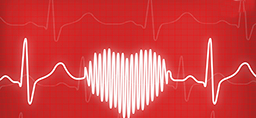
So, your cholesterol numbers aren’t where you want them, and you think you’ve done everything you can to get them down.
Don’t throw in the exercise or dieting towel just yet.
Consider examining why your numbers are high.
There are many potential reasons, noted Spectrum Health preventive cardiologist Thomas Boyden, MD.
Maybe individuals are not eating the right food or exercising enough.
Maybe they have a medical condition, possibly genetic, that requires medication.
To get the numbers down, some people must combine exercise, diet and medication.
There is no one answer because everyone is unique, Dr. Boyden said.
Lower the better
He acknowledged the numbers can be confusing. That’s why it’s best to let your primary care physician guide you in analyzing and trying to combat the causes of high cholesterol.
Dr. Boyden suggests zeroing in first on the LDL cholesterol number. This is the “bad” cholesterol and it’s best if this is kept low, at less than 100.
Medically speaking, it’s wise to reduce your LDL cholesterol numbers because the higher the number, the more individuals are at risk of cardiovascular events, such as a stroke or heart attack.
Dr. Boyden said many people could lower their cholesterol levels by changing their diet or lifestyle.
Some individuals may need to take medication, but the kind and amount depends on what risk factors they have.
For example, people with diabetes have a higher risk of cardiovascular disease and high cholesterol levels would greatly add to the risk.
Other risk factors include high blood pressure, obesity and inflammatory bowel disorders.
For most people, a concerted focus on their diet will knock out some of that bad LDL cholesterol, and improve their “good” HDL cholesterol numbers for a better balance, Dr. Boyden said.
Healthy diets
People who want a healthier lifestyle may want to try one of the three eating patterns outlined by Holly Dykstra, MA, RDN, cardiovascular dietitian for Spectrum Health.
Dykstra said one of the most beneficial diets for reducing cholesterol is a whole food, plant-based one. It features mostly minimally processed or non-processed plant-based foods. Produce, whole grains, beans and lentils are what make up most of the diet. The diet has no meat, fish, poultry or dairy, so protein comes from plants like beans, vegetables, and whole soy products like tofu or edamame.
The Pescetarian diet is similar to the aforementioned diet, but allows seafood to be eaten as a protein source occasionally. It also incorporates a lot of fruits and vegetables, and allows room for eggs or dairy occasionally.
She said the Mediterranean diet is similar to the Pescatarian because it’s high in produce, whole grains, beans and lentils and also includes herbs and spices to season food instead of salt. It features unsaturated fats such as fish, nuts and seeds as well as dairy and some eggs. Small amounts of poultry can be eaten regularly, but red meat is limited. Also, sweets and fried foods are only eaten rarely.
Dykstra said the Mediterranean diet is probably the most popular because it is also the easiest to follow.
“Everybody is different, so I like giving choices,” she said. “We want people to have guidelines to follow for best health measures but the diet must be sustainable. These three diets are filled with nutrients, and research shows they all support good cardiovascular health outcomes. But the best one for you is the one that you can feel comfortable following long-term.”
Dr. Boyden strongly supports and encourages pursuing any of the three diets. He said they provide healthy benefits, irrespective of a person’s cholesterol numbers.
“Typically, following one of those diets will lower your cholesterol numbers if people are following the diets the way they are supposed to be,” he said.
 /a>
/a>
 /a>
/a>
 /a>
/a>
Really useful benefits. It’s helping me For health. Thanks for the tips